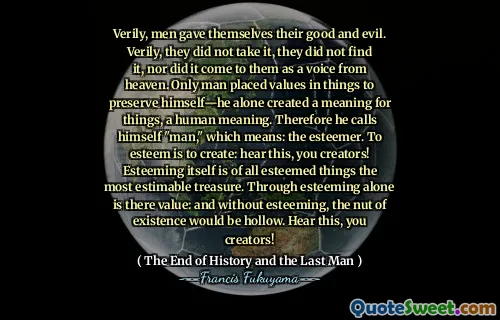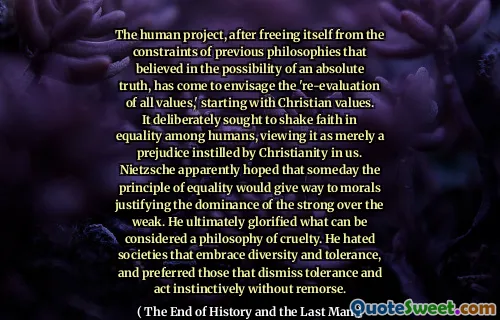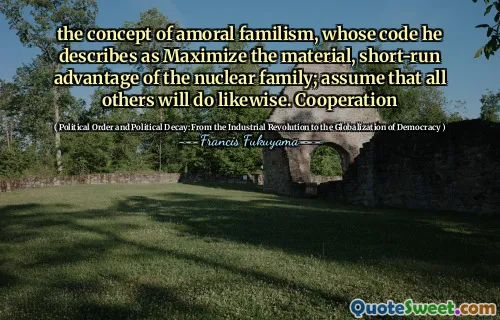In "The End of History and the Last Man," Francis Fukuyama argues that the global spread of liberal democracy signifies the culmination of humanity's ideological evolution. He posits that the ideological battles of the 20th century, particularly between liberalism, fascism, and communism, have been settled in favor of liberal democracy. Fukuyama asserts that this system not only represents the highest stage of political development but also satisfies the deep-seated human desire for recognition, a critical component of human identity. Fukuyama acknowledges the potential challenges to this new order, including resurgent nationalism and religious extremism, but he maintains that these threats do not negate the overarching trend towards liberal democracy worldwide. He emphasizes that while authoritarian regimes may appear stable, they are fundamentally at odds with the inherent human aspirations for freedom and self-actualization. Therefore, he believes that the principles of liberalism will continue to gain traction despite temporary setbacks. In this context, Fukuyama reflects on the future role of the United States and its allies in promoting democratic values. He contends that the U.S. must navigate the complexities of globalization and work towards maintaining stability in the face of emerging challenges. Ultimately, Fukuyama's work is a philosophical exploration of the implications of political evolution and the enduring significance of liberal democracy in shaping the modern world.
Francis Fukuyama is a prominent political scientist and author known for his influential works on political theory and international relations. His writings often explore the interplay between culture, politics, and economics, particularly in relation to democracy and governance.
Fukuyama gained international recognition for his book, "The End of History and the Last Man," published in 1992, which sparked extensive debate about the future of democracy and the ideological landscape following the Cold War. His arguments about the triumph of liberal democracy reshaped discussions in political philosophy and global politics.
Throughout his career, Fukuyama has contributed to various academic disciplines and policy discussions, emphasizing the importance of democratic institutions and the implications of political development for global stability. His insights continue to resonate in contemporary debates about governance and international relations.
More »
Today Birthdays
1955 -
Max Lucado
1946 -
John Piper
1842 -
William James
1907 -
Abraham Joshua Heschel
1887 -
Aldo Leopold
1755 -
Alexander Hamilton
1976 -
Alethea Kontis
1971 -
Mary J. Blige
1825 -
Bayard Taylor
1943 -
Jim Hightower
1885 -
Alice Paul
1923 -
Carroll Shelby
1928 -
David L. Wolper
1954 -
Kailash Satyarthi
1972 -
Amanda Peet
1946 -
Naomi Judd
1970 -
Malcolm D. Lee
1955 -
Christian Marclay
1973 -
Rahul Dravid
1987 -
Jamie Vardy
1942 -
Clarence Clemons
1992 -
Fatima Sana Shaikh
1948 -
Larry Harvey
1930 -
Rod Taylor


